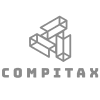
When a developer develops a product or application, it does not end there. It is of the utmost importance that it reaches the desired quality. Software testing is the process of verifying that the app or product functions the supposed way. The software undergoes rigorous testing either with manual tools or automated tools. The tester makes sure the software meets all the product needs and demands. They also make sure it matches the requirement given by the client. Thus, software testing services help fix errors, bugs, and defects with quality assurance and ensure it meets the required quality.











It is imperative to analyze the client's requirements when starting a project. It gives an understanding and helps decide on the software testing model required for the project.
Our testing team provides an adequate number of test cases. The test case helps the team verify the expected result and determine if the app functions according to the client's requirements.
Our testing team is adept and will strategize testing timelines so that you get the project delivered on time. They also fix bugs immediately, if any.
In addition to specializing in project implementation and integration, our testing team cooperates with our technical team to align.
Before the project deployment, our testing team will test the project in every possible way. They analyze the testing process and stages that apply to the project.
Our objective is to deliver products to the client's satisfaction. We make sure to provide reliable services. You can reach us anytime and suggest modifications to the project.
Web Applications
Mobile Applications
Desktop Applications
Business Software
Saas
Big-data apps
IoT apps
Database related software
The traditional waterfall development model is also known as a sequential model. In this model, the testing gets done at each stage before moving to the final. Our developers follow the traditional waterfall development model for uncomplicated projects.
The Agile Development Model is one of the testing processes where the project gets broken into small pieces, and testing gets done frequently. Our testing team uses this model for complex projects. We confirm the development model now and then with clients.
V Model is the sequential way in the testing phase. Our testing team will verify and validate each stage of the development process and hierarchically proceed to the next step. Our testing team prefers this model for small to medium-sized projects.
The Spiral model in the testing process is a bit risky as it involves adding additional features at any stage of development. Our testing team will do it effortlessly and use this model for high-priority complex projects.
Unit testing is the first phase of the verification stages and comprises a White-box testing process. In Unit testing, our team will segregate the complete system into separate units and evaluate each unit individually to ensure it works well.
Integration testing is the second phase of the verification stage, and it comes under the White-box testing process. The Integration testing will identify and rectify the errors that occur on integrating two or more individual units. Our team will fix the errors and their causes.
System testing is one of the validation stages and includes the Black-box testing process. Our team of testers will collectively evaluate the integrated methods in system testing. This stage is to make sure that the product meets the project requirements.
Acceptance testing is the final phase of the validation stages. It again involves ensuring that we meet the client's requirements. The application is ready for deployment if the software clears this testing process.
Selenium
TestingWhiz
HPE UFT
Protractor
TestComplete
Ranorex
Visual Studio
Sahi
Watir
Tosca Testsuite
© Copyright 2025 Abservetech Private Limited, All Rights Reserved.